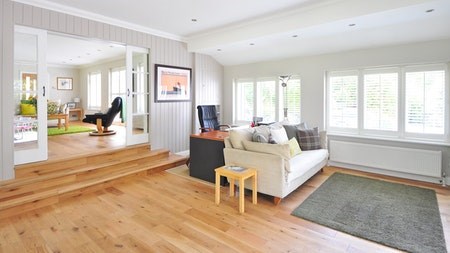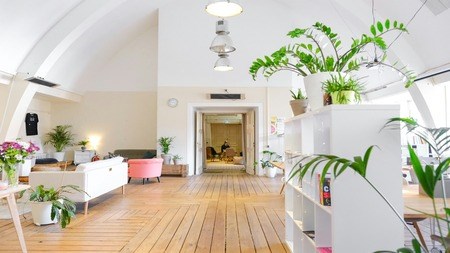Open plan living has become an established trend, primarily because it facilitates a relaxed, harmonious, more sociable way of life, however, with the advent self-isolation and remote working, the concept has evolved into one of the biggest interior design trends of 2021.
Chris Cilliers, CEO of Lew Geffen Sotheby’s International Realty in the Winelands, says: “No one can deny the benefits of open plan spaces which create a sense of sociability, allow for more spacious and bright living areas and enable multiple functions to be performed in the same area.
“However, with Covid restrictions in place, there is a greater need for privacy and personal space and for us to add boundaries to our living and work zones so they don’t constantly spill over onto one another and the most practical and economical solution is to shift from open- plan to broken-plan living.”
Cilliers explains the concept: “In a nutshell, broken plan is still an open-concept design, but with the focus on integrated living. You retain the spacious airiness of open-plan living but, through the clever use of the available space and the creation of distinct zones, you allow for more flexible use throughout the day.
“Essentially, you are creating separate personal hubs in your home for working, family time, dining, study and leisure. This also adds visual interest, and enhances the livable aspect of an open-plan area.
“This can be achieved in a number of ways, including through the use of different floor finishes, split-levels, glass partitions and semi-permanent partitions, such as bookcases and screens and even mezzanine levels.” However, simple as it may sound, Cilliers says that there are a number of factors to consider and a few tricks to learn to ensure that the result isn’t impractical, disjointed or even unsightly.
Let there be light – One of the main reasons you opted for open plan was for the light, so it’s important to try and preserve as much of the same flow of light as possible. And with the room divided into distinct zones for different uses, you can further distinguish each area with its own light source. Think statement lamps or standing lights.
Half walls – Although a dated concept, they are making a comeback as they are a great way to break up rooms without affecting sight lines and light. Modernise a half wall by making it a statement feature in the room. Paint it a vibrant or contrasting colour, add texture using brick or wood or you can even have it double as a bookshelf.
Glass walls – If you need more privacy or peace and quiet for your work, glass walls are a great way to achieve clear definition while keeping your home bright and spacious.
The sunken room – Last seen in the 1970’s, the sunken room is an area of a room that is dug/lowered about half a metre lower than the rest of the living space. It’s ideal for keeping all the kids toys in once place and also as a TV snug.
Flooring focus – Different flooring is great for creating the perception of distinct zones without interfering with the overall flow of the space. For instance, If you have tiling throughout, consider swapping your lounge floor for carpet instead. But if you feel that’s too costly or drastic a change, a couple of cleverly-placed rugs will do the trick.
Elevate - Mezzanines are a beneficial way of creating extra room smaller spaces which would appear very cluttered if you need more than two or three zones. It’s also the perfect as a work station as it’s above the main activity and distractions in the room.
Flexible solutions – If you think the layout you currently need might be temporary, use portable dividers like screens which allow for constant change depending on the need for privacy - or not. Or you can use furniture items like open shelving which is a bit less flexible but no less temporary. Indoor plants and even just rearranging the furniture will also help to create separate spaces.
“Essentially, broken plan design gives you the best of both worlds – all the benefits of open-plan living but with considerably more privacy and functionality,” says Cilliers.
“And the best thing about it is that all it really requires is a little imagination. Even a shoestring budget isn’t a stumbling block to transforming your living area into a multifunctional live/work/play space.”




